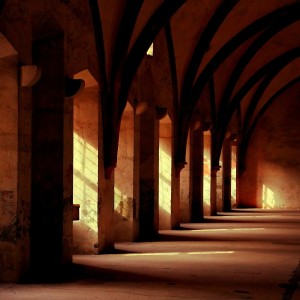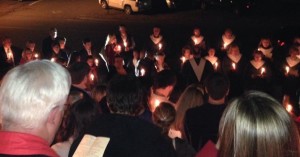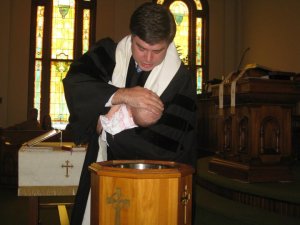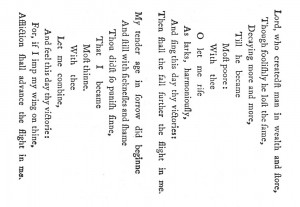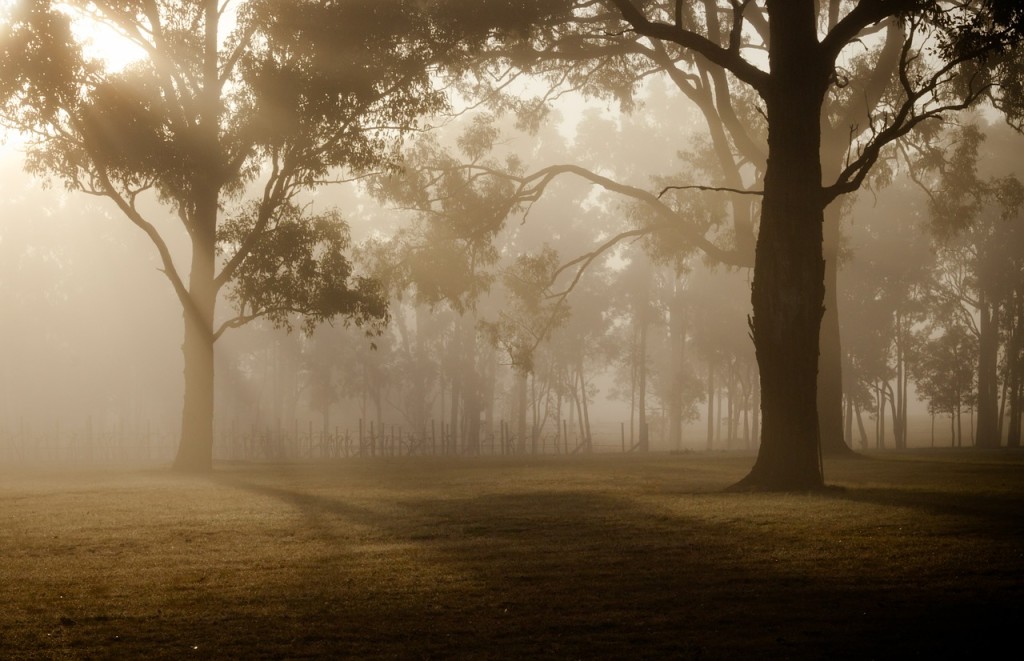
The place was a garden, typifying the paradise of old. For in this place, as it were, all places were recapitulated and our return to humanity’s ancient condition was consummated. For the troubles of humanity began in a paradise, while Christ’s sufferings, which brought us deliverance from all the evil that happened to us in times past, began in this garden. — Cyril of Alexandria (early 5th Century)
It began in a garden, that is where our sufferings and difficulties began. God, who is named “I AM”, had made man in His image, to be in a relationship with him and placed him in a garden. To tend it and keep, or guard it. God was present with them, walking among them in the cool of the evening. So in this garden-temple, Adam was to have been a priestly king, reigning over all creation. We had access to the Tree of Life, and one prohibition. To not eat of the Tree of Knowledge of Good and Evil, “for on the day you eat of eat you shall die”. To disobey meant death.
But in the garden our troubles began. Adam’s wife, his fit helper was deceived. The serpent had entered the garden of life and made them question God’s Word. They questioned God’s good gifts. He tempted them – your eyes will be open – you will be wise – you will see – you will know – you will be enlightened, illuminated. You will be like God. And so man, tempted to be God came to the Tree of testing and disobeyed. Adam and Eve ate. And their eyes were open. But the serpent had tricked them, they didn’t know all that would happen to them. Their eyes were open to their nakedness, weakness, brokenness, and vulnerability. They had traded God’s wisdom for their own, light for darkness, righteousness for sin. And in shame they hid themselves from the all-knowing God.
And in the evening, God seeks them, he comes to them calling and asking “Where are you?” God, who knows better than Adam and Eve, asks “Where are you?”. Adam answers, “I was afraid, because I was naked, and I hid myself.” God, who keeps his word, pronounced his curses on man (he who is from the ground will return to the ground), woman, the serpent, the ground. All of Creation, of which Adam was charged to be a steward, was disrupted and not least our relationship with a Holy God. He lost all that the Father had given him. And God drove them from the Garden, sending them East of Eden and leaving the Garden to be guarded by cherubim, angels bearing swords, blocking the way to the Tree of Life. But not before promising that one day the Seed of the woman would bruise the Serpent’s head, yet only by having his own heel bruised.
And Adam’s children grew in their sin and rebellion. As permanent residents East of Eden they continued to seek their own wisdom, to be as gods, and to hide themselves from the ever seeking, all knowing “I Am.”
It began in a garden, that is where his suffering began. It was a Garden named Gethsemane where Jesus went with disciples after the Passover meal. Jesus, the very Image of God, the firstborn over all creation walked with his disciples in the cool of the evening. He came to this garden, knowing that it was for him a garden of death. His words to Judas at the Last Supper showed that he was well aware that he was to betray him and rather than hiding from his pursuers he goes outside the Temple City, they go East across the Kidron to a place Judas knew well.
And Judas comes. He is leading a band of the king’s soldiers, some of the priest’s officers, or temple guards, and Pharisees, who put their words in place of God’s word. We see in this throng an reflection of Adam’s fall. We were to be priests and kings, to obey the word and guard the temple. Now these come seeking the destruction of their true sovereign, steward usurpers, claiming as their own their delegated authority. They come with “lanterns and torches”, seeking the one who had told them “I am the light of the world. Whoever follows me will not walk in darkness, but will have the light of life.” But this is the foolishness of those who are tempted to be wise apart from God, who seek the “know good and evil” by their own grasping. We refuse the Light of Life and fashion our own dim torches to fumble around in the shadows.
Before they can say anything Jesus, “knowing all that would happen to him”, comes forward and asks them “Who do you seek?”. This man does not hide. He knows the answer better than they do. They don’t have a clue who he is, but answer “Jesus of Nazareth”. And Jesus answers, “I AM”. There is no hiding from the ever seeking, all knowing “I Am”.
God himself has come to us. The Word became flesh and dwelt among us. The light that enlightens the who world, who is life and the light of man shines in the darkness, and the darkness has not comprehended, has not overcome the light. God himself coming was the only way for creation’s curse to be removed. The sin of a man who would be as God, could only be reversed by a God who would become man. The First Adam’s disobedience could only be cured by the obedience of the Second Adam.
When Jesus identified himself with the divine “I Am”, they drew back and fell to the ground. He tells them that if they were seeking him to let the disciples go. John reminds us that Jesus had just prayed, “Of those whom you gave me I have lost not one.” The Second Adam is a perfect Steward of all with which he is entrusted, promising that of those whom the Father has given him, “no one will snatch them out of my hand.” But Peter draws his blade and strikes, as though he would protect the Lord who commands angels with a sword. Peter put away your sword. The Garden is not won back through force, but by humility, suffering, and the Son of Man laying down his own life.
Peter, put your sword into its sheath, “shall I not drink the cup that the Father has given me.” The cup is God’s judgment and wrath on sin. “it is God who executes judgment, putting down one and lifting up another. For in the hand of the LORD there is a cup with foaming wine, well mixed, and he pours out from it, and all the wicked of the earth shall drain it down to the dregs.”
But this cup is taken not by the wicked, but by the Righteous One. God’s judgment and wrath is poured out on the cross. Our return to the Tree of Life won back by way of the Tree of Death. God, who keeps his word, crushed the serpents head. Himself become the woman’s Seed, himself having his heel bruised.
Where Adam grasped to be as God and disobeyed, losing all that he had been given and earning death; Jesus, the second Adam, emptied himself to become Man, obeying the Father to the point of death on the Cross, saving all he had been given and winning everlasting life.
